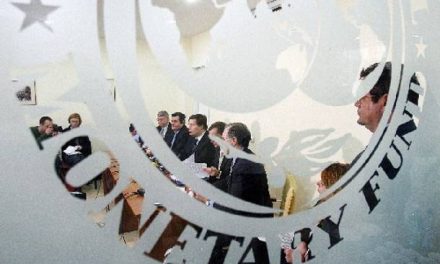Charles Dallara, the former Greek-debt negotiator on behalf of the private sector in 2012, calls for wide-ranging reforms in Athens’ bailout package and issues a stark warning to northern Europe, after a calamitous week of negotiations.
Markets are convulsing amid a dangerous game of brinkmanship between northern European creditors and the new anti-austerity administration in Greece. The European Central Bank (ECB) announced on Wednesday it would no longer allow Greek banks to use their country’s bonds as collateral to access direct ECB financing, citing uncertainty over the continuation over the bailout programme with international creditors. The move leaves the emergency liquidity assistance (ELA) – an indirect form of financing via the national central bank – as the principal form of liquidity assistance for Greek banks. A farcical press conference on Thursday concluded with a stand-off between Greek finance minister Yanis Varoufakis and Wolfgang Schäuble, his German counterpart, revealing the divide between the two countries over the how to tackle the twin challenge of financing Athens in the near-term and relieving its outstanding debt stock. Amid fears over the Cyprus-like introduction of capital controls to stem capital outflows, Greece is in desperate need of bridge-financing before its programme expires at the end of February.
One London-based European bank analyst says though the ECB decision on Wednesday was technical, there is now a material risk of Grexit, adding: “At one level the ECB’s announcement is a technicality – the ECB will still fund Greece just through the back door [ELA] rather than through the front door [MRO]. “This is a giant game of chicken. There are still a lot of deposits in the Greek system. But deposits are the transmission channel through which accidents can happen. The risk of Greece exiting the eurozone by accident is between 1/10 and 1/5.” Varoufakis has said the government will present a detailed debt-restructuring proposal by the end of February with the aim of securing a new deal by June, citing Greece’s solvency, rather than liquidity, challenge. This could include proposals for ECB-owed debt to be converted into perpetual bonds – a proposal the ECB has already rejected – and GDP-growth-linked swaps to official creditors, except the ECB, among other initiatives. Germany reportedly expects negotiations to drag on until May.
Charles Dallara, who was in charge of coordinating private-sector creditors in his capacity as head of the Institute of International Finance, a bankers’ lobby group, successfully spearheaded the Greek private sector involvement (PSI) in 2012, the biggest sovereign debt restructuring in history. This saw around €100 billion of write-downs, equivalent to a 53.5% face-value loss on Greek bonds, avoiding the taboo of the IMF and ECB taking write-downs, and, in the process, triggering the mother of all rallies in Greek credit until the new administration assumed office in January.
The latest Greek crisis highlights the failure of that bailout to generate a sustainable debt profile and a palatable fiscal policy, resulting in the failure of the previous administration to claim ownership of the rescue package to defend it in the court of public opinion. In an interview with Euromoney, Dallara says the troika – the European Commission, the IMF and the ECB – should relax fiscal targets for Greece, and the IMF should lower interest rates on bailout loans. In addition, the ECB should provide ample liquidity assistance for the banking system, as well as recycle its profits on Greek debt holdings to policymakers in Athens. Greece 3 growth “Why now fixate on the debt issues?” says Dallara. “The question is how to generate higher nominal growth. The question is how to re-orientate the package from the belt-tightening measures, which proceeded at a too-rapid pace and became self-destructive. Athens should have more say in the design of the programme.” In turn, Athens should accept that debt-to-GDP targets underscore the need for a medium-term growth plan rather than serving as a benchmark to calculate desired official-sector losses, Dallara says. This bargain should be sweetened by the re-profiling of sovereign debt in favour of longer maturities and structural reforms, giving Athens counter-cyclical fiscal space.
On ECB support, Dallara, now the executive vice-chairman of Partners Group, a global private equity firm, adds: “Greek banks are vulnerable, not because of mismanagement, but because their capital base is being eroded due to sovereign fears. There is a material risk of destabilizing the Greek financial system and Greek banks merit support.” Greek grumbles Private-sector holders of Greek debt in 2012 grumbled that the troika – emphasizing the 120% debt-to-GDP ratio benchmark – kept their bailout contribution hidden throughout the PSI negotiations as a means to force private creditors to accept greater nominal losses. Greece 1 In any case, this strategy spectacularly failed. Greece’s debt to GDP was an eye-watering 175% of GDP at the end of 2013, higher than the 170% before the haircut, and 157% immediately after, thanks to the negative-growth impact of massive spending cuts and tax hikes, now dubbed the biggest fiscal contraction over a three-year period for an advanced economy in modern history.
Dallara says: “I have never seen so many repeated rounds of fiscal austerity that left the economy to contract by 25%. The IMF started this programme and should realize it was wrong-headed. The obsession with debt sustainability is counter-productive. “I really think Greece is right to ask for more fiscal flexibility, but it’s not going to grow if it rolls back on structural reforms, else it will slide back to the oligopolistic economic structure.”
Charles Dallara, who was in charge of coordinating private-sector creditors in his capacity as head of the Institute of International Finance, a bankers’ lobby group, successfully spearheaded the Greek private sector involvement (PSI) in 2012, the biggest sovereign debt restructuring in history. This saw around €100 billion of write-downs, equivalent to a 53.5% face-value loss on Greek bonds, avoiding the taboo of the IMF and ECB taking write-downs, and, in the process, triggering the mother of all rallies in Greek credit until the new administration assumed office in January. The latest Greek crisis highlights the failure of that bailout to generate a sustainable debt profile and a palatable fiscal policy, resulting in the failure of the previous administration to claim ownership of the rescue package to defend it in the court of public opinion. In an interview with Euromoney, Dallara says the troika – the European Commission, the IMF and the ECB – should relax fiscal targets for Greece, and the IMF should lower interest rates on bailout loans. In addition, the ECB should provide ample liquidity assistance for the banking system, as well as recycle its profits on Greek debt holdings to policymakers in Athens. Greece 3 growth “Why now fixate on the debt issues?” says Dallara. “The question is how to generate higher nominal growth. The question is how to re-orientate the package from the belt-tightening measures, which proceeded at a too-rapid pace and became self-destructive. Athens should have more say in the design of the programme.” In turn, Athens should accept that debt-to-GDP targets underscore the need for a medium-term growth plan rather than serving as a benchmark to calculate desired official-sector losses, Dallara says. This bargain should be sweetened by the re-profiling of sovereign debt in favour of longer maturities and structural reforms, giving Athens counter-cyclical fiscal space. On ECB support, Dallara, now the executive vice-chairman of Partners Group, a global private equity firm, adds: “Greek banks are vulnerable, not because of mismanagement, but because their capital base is being eroded due to sovereign fears. There is a material risk of destabilizing the Greek financial system and Greek banks merit support.” Greek grumbles Private-sector holders of Greek debt in 2012 grumbled that the troika – emphasizing the 120% debt-to-GDP ratio benchmark – kept their bailout contribution hidden throughout the PSI negotiations as a means to force private creditors to accept greater nominal losses. Greece 1 In any case, this strategy spectacularly failed. Greece’s debt to GDP was an eye-watering 175% of GDP at the end of 2013, higher than the 170% before the haircut, and 157% immediately after, thanks to the negative-growth impact of massive spending cuts and tax hikes, now dubbed the biggest fiscal contraction over a three-year period for an advanced economy in modern history. Dallara says: “I have never seen so many repeated rounds of fiscal austerity that left the economy to contract by 25%. The IMF started this programme and should realize it was wrong-headed. The obsession with debt sustainability is counter-productive. “I really think Greece is right to ask for more fiscal flexibility, but it’s not going to grow if it rolls back on structural reforms, else it will slide back to the oligopolistic economic structure.”



















